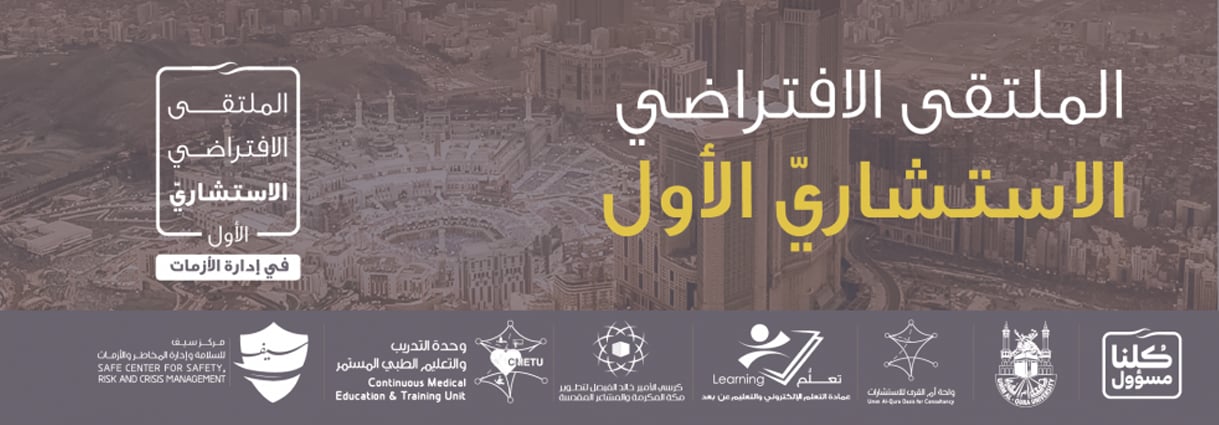
The Dean of E-Learning and Distance Education, Dr. Khalid Al-Mutairi, stressed the importance of digital transformation in achieving and developing the organization's strategy by investing in technology and talent. This is due to the fact that digital transformation is a fundamental factor that will lead to the fulfillment of Saudi Vision 2030 to transform Saudi Arabia into a digital country and community.
These statements were mentioned in the sessions of the third and last day of the First Virtual Consulting Forum in Crisis Management, which was organized by the Institute of Consulting Research and Studies at Umm Al-Qura University. The three-day forum aimed to discuss the crisis management strategies in different scientific and research fields and from the perspective of specialized consultants.
The Vice Dean of Faculty Members and Employees Affairs for Academic Affairs, Dr. Bandar Al-Rabeiy, tackled the dangers of crises to the sustainability and survival of organizations. He also stressed the importance of organized planning in managing crises and its effective impact on maintaining the administrative processes during the crisis. In addition, it helps the organizations continue their work.
Dr. Emad Felemban, an academic staff member at the College of Computer and Information Systems, clarified that crowd management during health crises includes prior planning in order to contain the crisis and control crowds by applying tactical measures when losing control. The precautionary measures taken include social divergence and preventing gatherings.
Dr. Abdul-Hadi Al-Dhiabi, the Head of the Department of Special Education, clarified the pioneering role of the Saudi Kingdom, the precautionary measures it takes, and health care it provides, which have made the Kingdom a role model to be followed worldwide. Dr. Abdul-Hadi also stressed that the society should adhere to the instructions issued by the responsible authorities, and people should stay at home.
Dr. Ammar Attar, a professor at the Department of Community Medicine, pointed out that crises lead to innovation, as the recent crisis has contributed to finding practical solutions in record time. In addition, it has unified the work carried out by different entities and sectors, and has highlighted the talents and creativity of the members of society.
At the end of the forum, the speakers made several recommendations, which included the importance of obeying the rulers by staying at home during this crisis, and of promoting international cooperation to support research, development, and consultation. The recommendations also included encouraging all entities to adopt positive and creative behavior in order to reach innovative solutions that can be turned into opportunities, and unifying the efforts exerted in different specializations and entities. Other recommendations included stressing the importance of the continuation of the educational process remotely, and the necessity of the sense of social responsibility on the part of different universities. This is represented by providing the necessary support to individuals and state institutions and holding scientific consulting forums in order to strengthen the cohesion and unity of society to overcome the crisis and mitigate its effects.